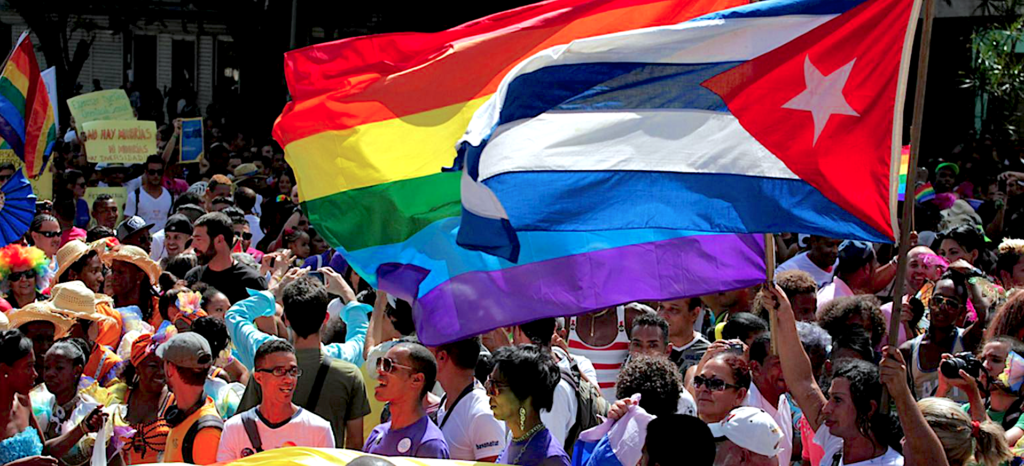
Published 17/05/2023 17:19 | Edited 5/17/2023 6:19 PM
Since the film Strawberry and Chocolate (1994) became an international success, showing the difficulties of gays, lesbians and transvestites in the country, much has advanced. And Cuba is becoming exemplary in its public policies in defense of the protection of the rights of these populations. But there is still more to fight, and Cuban LGBT+ activism is paying back the debts that the Revolution has not yet paid.
With the motto “with all families, love is law”, the 16th Day against Homophobia and Transphobia occupies the month of May in Cuba, dedicated to the new Family Code, approved by referendum in July 2022. The code legalized in Cuba, equal marriage and the adoption of children by LGBTIQ+ couples, among other advances. The advanced legislation allowed the legal union of at least 745 homosexual couples across the country, according to official data.
Last Saturday (13), the Conga against homophobia and transphobia in Cuba took place, an annual parade filled with Caribbean rhythms, despite the threat of a storm. The participants occupied the 3rd avenue of the Vedado district of Havana with colorful banners and floats in the first activity of this type that they carry out after the approval of the Family Code. The parade has been funded by the government since 2008, but has suffered interruptions due to the 2019 economic crisis and the pandemic.
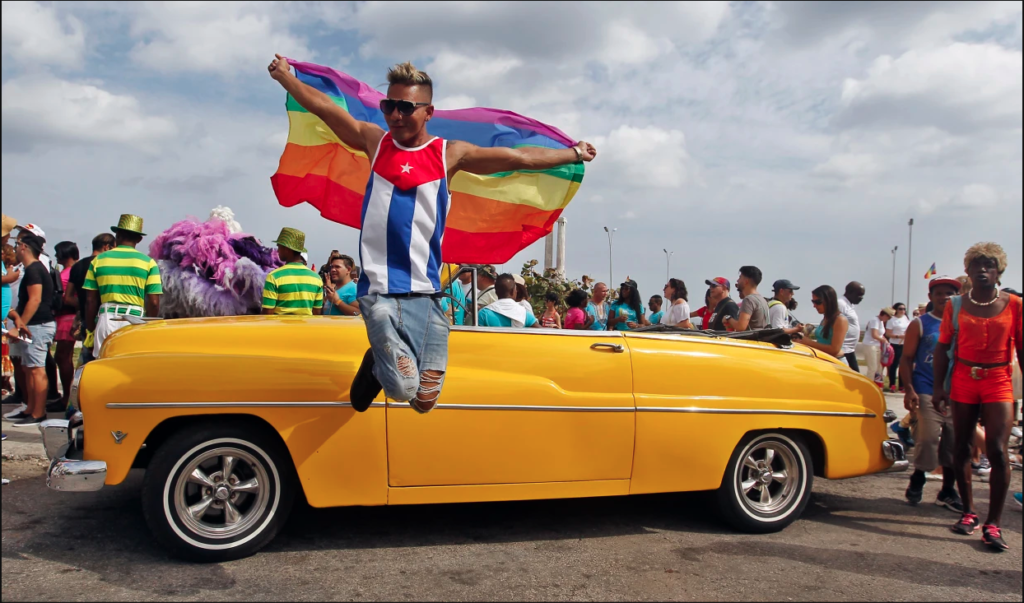
historical debt
The movement recalls periods marked by social rejection, the establishment of “parameters” that limited the use of people with non-heteronormative sexualities in education and culture, and an obscure chapter in national history marked by the Military Production Support Units (Umap).
About 25,000 men were sent to these forced labor camps from 1965 to 1968, a significant part of them homosexuals and religious, considered by the authorities at the time “deviants” or “social scourges”. The Umaps were dissolved by the government’s own decision in June 1968.
Now, those who celebrate what they still consider an incomplete emancipation want a Comprehensive Gender Identity Law in Cuba. The objective is to end discrimination that still hinders integration into society, guarantee legal protection for trans people who are not yet fully recognized, guarantee their access to the health system for sexual reassignment surgeries, reduce the violence and abuse they still suffer. in the family and society, guarantee freedom of association and expression of LGBT+ organizations, in addition to the application of education legislation with a gender perspective in schools.
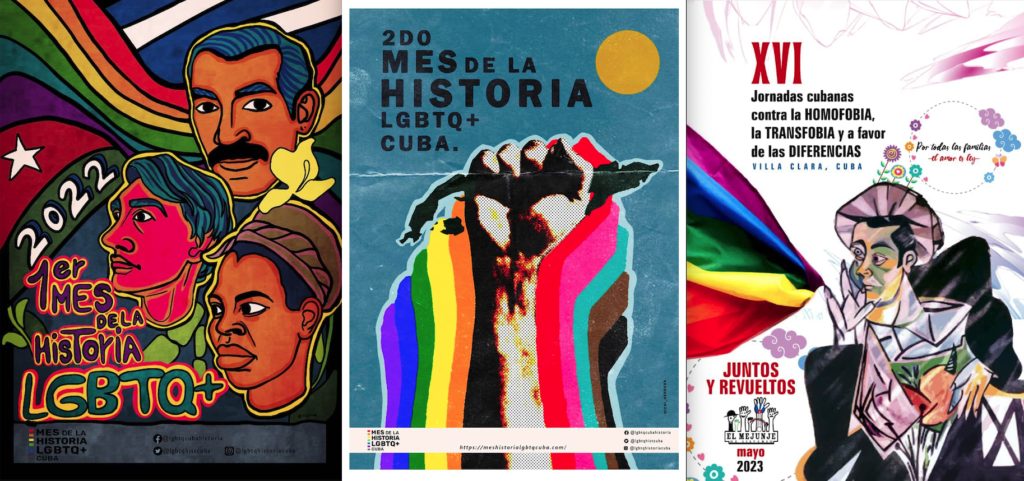
Winning hearts and minds
Since 2008, these days of struggle have been promoted throughout the month by the National Center for Sexual Education (Cenesex), an agency linked to the Ministry of Health. Since 2007, these days have aimed to raise awareness and awareness in the fight against sexual and gender discrimination.
This country of 11.2 million inhabitants is also the first Spanish-speaking country and the first in Latin America and the Caribbean to join 23 other nations (from the industrialized north) in celebrating LGBT+ History Month. The first edition took place from May 1 to 31, 2022 in Havana and Santa Clara, 270 kilometers east of the capital.
Founded in 1988, the National Center for Sexual Education (Cenesex) aims to “promote sexual education from the emancipatory paradigm of socialism, considering the socio-historical perspectives of sexuality, in which its biological and environmental bases are integrated”.
Through panels with experts, workshops, lectures, audiovisual presentations, commemoration of historical dates and figures, podcasts and interviews, they seek to give greater visibility to the LGBT community and education on these topics.
In addition to academic activities, Cenesex currently offers, throughout the year, legal advice in cases of discrimination, psychological support for victims of abuse and counseling for transgender people, among other activities. Just as LGBT+ people seek the agency’s help, companies and other people seek guidance on how to deal with the specificities of these populations.
However, these demands reveal a Cuba that still needs to move forward so that there is no violation of rights, but respect for social diversity. The family code is an important tool for this to happen.
But the activities promoted by the university and social movements seize the moment to break taboos and revalue Cuban personalities like Carlota, a woman, black, lesbian and leader of a slave revolt in 1843. Likewise, recalls the Swiss doctor Enriqueta Favez (1791 -1856), the first woman to practice medicine in Cuba and America with a male identity, due to the prejudices of the time, and who married another woman; as well as the painter, draftsman, photographer, muralist and graphic artist Raúl Martínez (1927-1995).
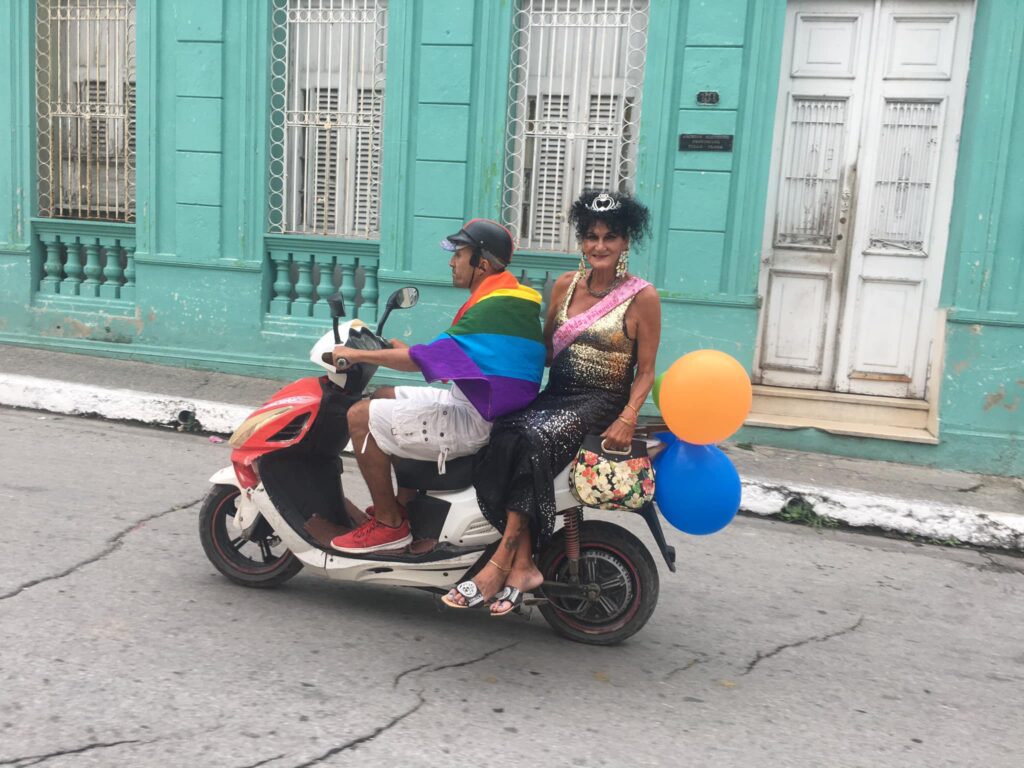
feminist advances
The impact of the social crisis that affects the whole world also compromises the achievements of the Revolution. And those hardest hit by the losses of an economic crisis are precisely the most vulnerable social sectors, such as LGBT+ and women in general. Within the LGBT community itself, trans women tend to be victims of more social and health vulnerabilities, as well as stigma, despite the regulatory framework that prohibits discrimination.
With all the changes in mentality, Cubans also preserve macho and patriarchal habits such as the devaluation of women’s work in the home, which is where they return when there is a loss of jobs. The crisis makes women’s work invisible as husbands leave to provide for the family.
Just as the family code was accompanied by a new social activism linked to diversity and LGBTIQ+ communities, feminist struggles have also grown in Cuba in recent times.
Since 1960, the Federation of Cuban Women, founded by the revolutionary commander Vilma Espín, has been fighting for female emancipation with the achievement, still in 1961, of the legalization of abortion.
In the last decade, laws and public policies such as the Women’s Promotion Program, in force since March 2021, have promoted equity, the elimination of gender violence and non-discrimination based on sexual orientation and gender identity, principles that protect the Constitution effective since 2019.
Likewise, the pro-rights agenda has received significant momentum thanks to projects from civil society, activists, digital platforms and officially unrecognized media that showcase the realities of the LGBT community and advocate for increased legal protections, inclusion and empowerment.
Many of these civil entities articulate against other lines of exclusion based on gender, skin color or territory and, more recently, warn about the advance of anti-rights positions of some religious denominations and people with conservative and fundamentalist positions.
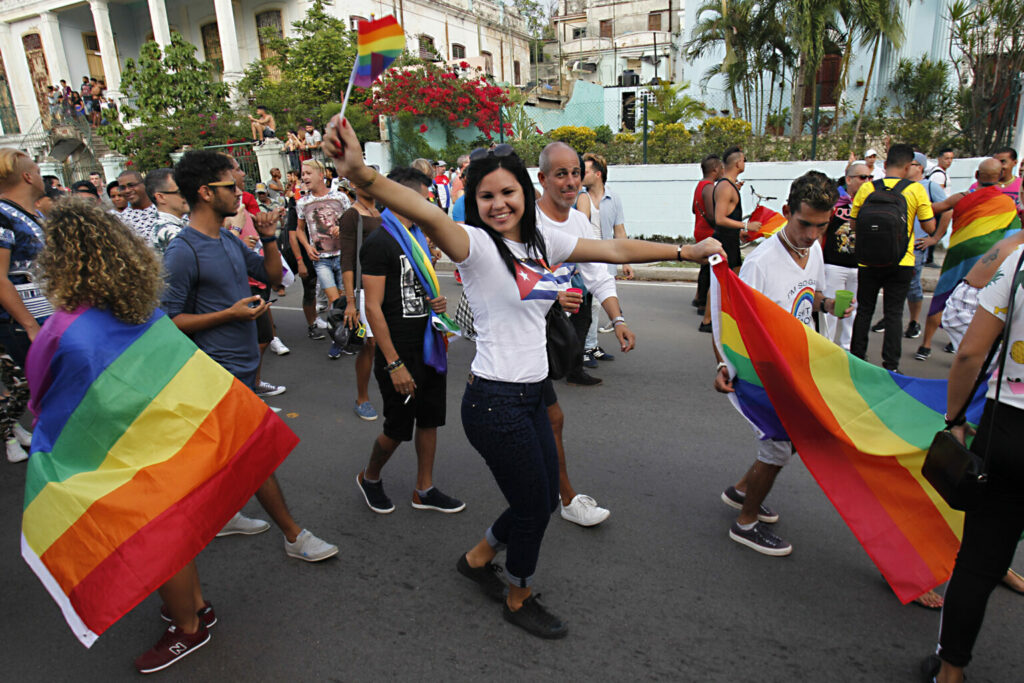
Source: vermelho.org.br

